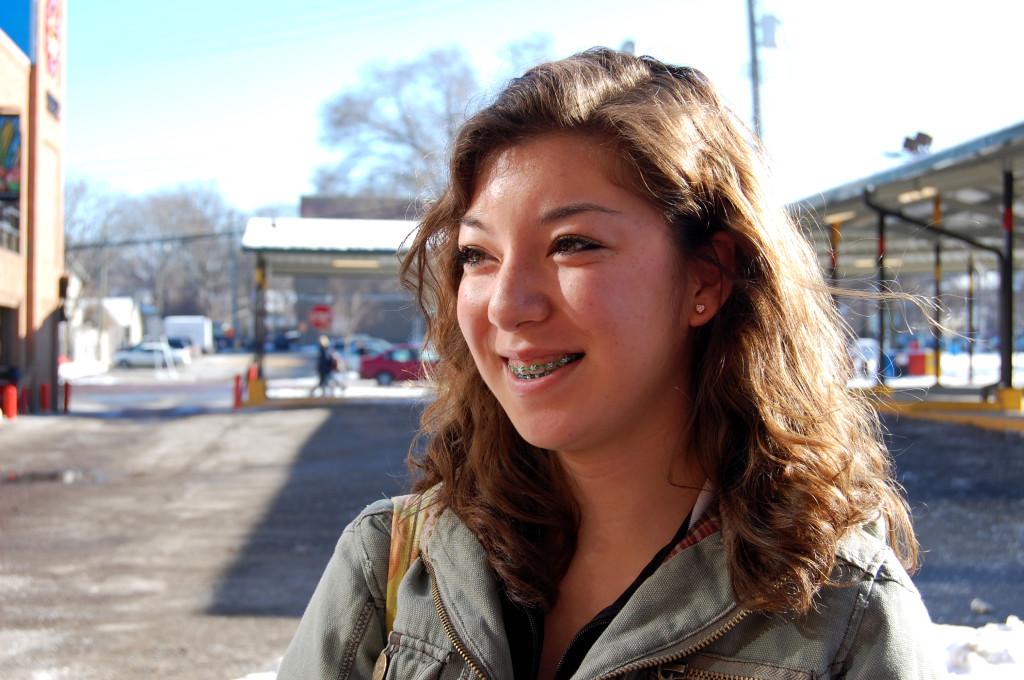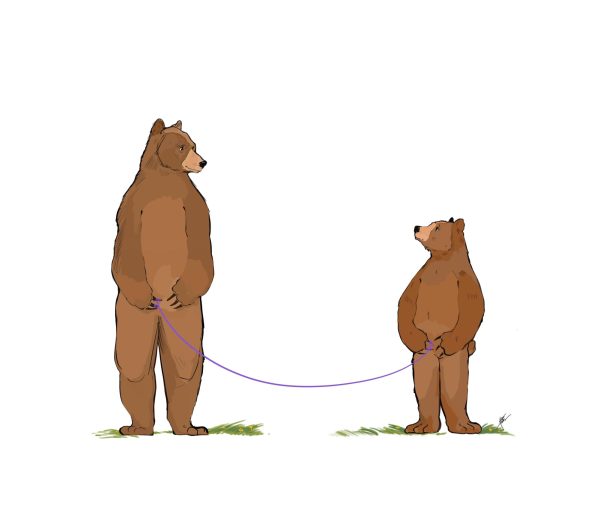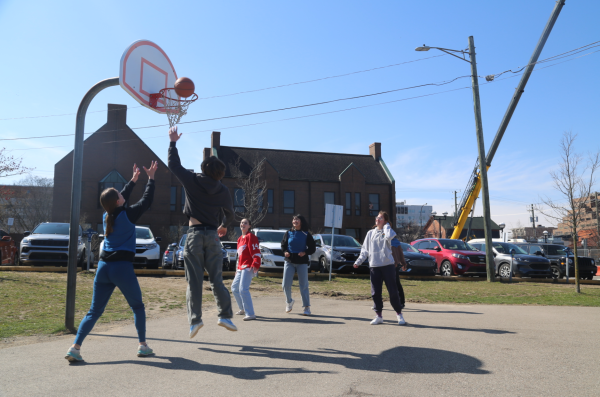Born to Serve
Joella Bennet is preparing to attend a military academy instead of a traditional college or university.
Originally published on January 21st, 2010:
The military has always been a focal point in Joella Bennett’s life, whether she wanted it to be or not. Her father was stationed in Korea when he met Bennett’s mother, Seong, a Korean civilian. Bennett and her brother were born in a hospital near a military base in South Korea and she spent the first year of her life there. Now Bennett is getting involved in military life on a whole new level – but this time it’s by choice.
Bennett is preparing to attend a military academy instead of a traditional college or university.
Before she began training, the first thing Bennett had to do was choose which branch of the military she wanted to be a part of. “It was a joke between my dad and me. He always told me that the marines were jarheads, and I heard that the air force was really snooty. I think I picked the army because my dad was in the army, but I considered the navy because my grandfather was in it.”
Bennett made her final decision when she went to Washington DC for a youth leadership forum on national security last October. There she learned about how soldiers in the army can train with the navy and learn how to fly.
The idea sparked an interest with Bennett. “Actually, before I did not want to be a helicopter pilot, I wanted to be a medic. Then I realized that you can combine being a medic with being a pilot. You can be a combat medic.”
A combat medic’s job is to carry injured soldiers back to bases. Being a helicopter pilot will go against stereotypes, but Bennett believes she can be an example for all aspiring women who want to be helicopter pilots. “You know how in movies the people who fly in the helicopters are big and buff and everyone looks up to them? It kind of proves that women can be just as strong too.”
Even with her father’s military background, the idea of going into the army is new for Bennett. About two years ago, Bennett and her dad went to a JROTC (Junior Reserve Officer Training Corps) drill meet. The meet showcased students from different high schools. They performed drills they had learned in the JROTC and competed against each other. “It turned out to be really interesting. The more I watched the more I wanted to be out there.” Remembers Bennett. She was inspired by the intensity and effort the students put in. “You would think kids our age wouldn’t be into it or wouldn’t have the willpower to be able to train every morning, and get everything down perfectly, but obviously they can.”
Though women are a minority in the military, the process of recruiting is the same for both genders. There are no official differences between sexes or races. “Anyone can come in and become a recruit.” Explains Tim Gavin, the executive officer for the ROTC branch at the University of Michigan. However, once in the military, women can’t hold all the positions men can.
In the military women cannot serve in the Infantry, armor, cannon field artillery, and short-range defense artillery. Gavin explains that is it federal law that women are not allowed to participate in combat “they just can‘t do that.” Even though women don’t always have the same positions as their male peers they’re expected to fulfill their task as a male would do. “Females are given the same responsibilities as…their male counterparts.” Says Gavin.
As far as Bennett is concerned, “it’s unfair but pretty logical. My dad was telling me ‘if a woman was in the infantry and one of her 230 pound comrades was shot, would she be able to drag him back to safety in time?” Bennett hopes that one day women will be allowed to do any tasks they are capable of performing in the military, whether that means being a Navy Seal or part of the Army‘s infantry. But for now, Bennett doesn‘t get too worked up about it. “It’s logical but I’m hoping someday it will change. I just accepted it as a fact.”
Currently, fourteen percent of the army is made up of women. Luckily for Bennett, being in a minority has not been a big concern. “I know that even if they do treat me differently that I would work as hard as I can to prove that I’m just as good as anybody else.” She explains. While she was in DC Bennett had the opportunity to meet with lots of active women in the army. “I was listening to a speaker in D.C, she was in the Air Force and she said that she did not see gender anymore.”
Even with a family history of being in the Army, Joella understands that she isn’t choosing a “typical” career route for a teenage girl. Even her father, the source of much of her inspiration, is shocked. “I think he is proud but sad at the same time. It’s not a typical girl thing.” Explains Bennett. “It seems like two years ago I was asking for a pony, now I’m growing up and starting to look at colleges and looking for a career and I throw this bombshell that I want to enlist in the Army and I think it threw him off a little.”
After his initial shock, Bennett’s father has been very supportive of her training. After 23 years of active service, Mr. Bennett knows all the ups and downs of military life. “I think it will be a good thing for her because it is a secure career, you travel and meet interesting people.”
Mr. Bennett has been very involved in Bennett’s training thus far. In the summer they regularly ran at Haisley Elementary School together and did exercises such as push-ups and track drills. A typical track workout for Bennett was done in two sets, each set consisting of a build up from 200 to 400 then to 600-meter sprints with a 200-meter jogging recovery between each sprint, for a total distance of 2 ¼ miles on the track.
Besides the physical training, Bennett must also work hard in school and participate in extra-curricular activities in order to get into her first choice of military academies, West Point. The academy is known to be very selective, and has a rigorous application process. Bennett must stay focused and on track if she hopes to be part of the West Point class of 2015. “Every time I open my book to study I feel great, because I know that in the future my actions better myself in preparing me to a leader.”














